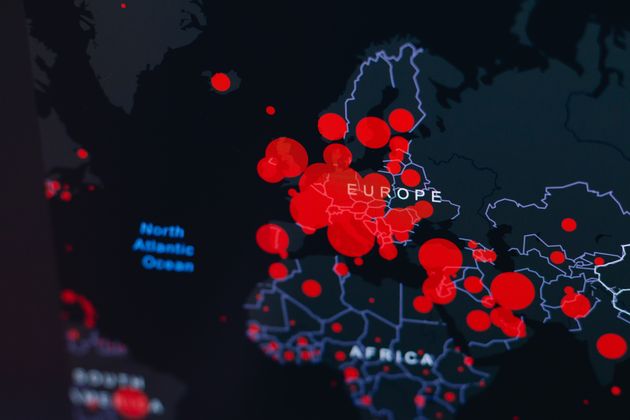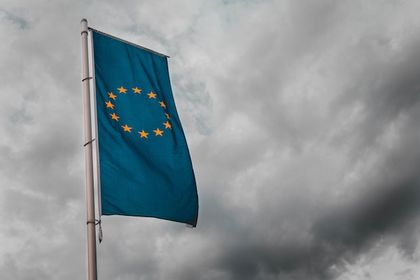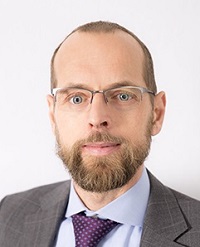The Brussels Representative of the European Evangelical Alliance, Arie de Pater, analyses the situation of the EU amid the coronavirus, and the role of Christians in this crisis.
 After Wuhan, Europe has become the epidemic center of the coronavirus. / KOBU Agency (Unsplash, CC0)
After Wuhan, Europe has become the epidemic center of the coronavirus. / KOBU Agency (Unsplash, CC0)
The advance of the Covid-19 epidemic throughout the countries of the European Union, has shown that the differences in the application of preventative measures and the timing of the gradual return to normality, have been overshadowed by even deeper challenges.
A part of the economic effects, the ensuing debt, and those who do not want to assume part of that debt and on those who ask that it be 'shared', the fragmentation among the members of the European Union also appeals to national identities, which are antagonistic political models regarding, for example, the management of immigration and climate change, a veritable political hotbed.
“We are in a moment of truth, which is deciding whether the European Union is a political project or a market project. I think it is political. We need financial transfers and solidarity, if only to make Europe endure”, the President of France, Emmanuel Macron, recently said in an interview for the Financial Times.
From Brussels, the Representative of the European Evangelical Alliance (EEA), Arie de Pater, recalls that the “European Union started as a peace project”, but also “has been an economic project, starting with a common market for coal and steel. The single market has been an important pull factor, even though the Union has insisted on common values”.
“Over the years, the Union has grown from six to twenty-eight and now twenty-seven members, all with their own interests and priorities. Decision-making has never been easy and the fact that all member states are now under tremendous economic and political pressure is not making it any better”, he adds.
Additionally, “short-term self-interest seems to trump long-term solidarity. This reduces space for the compromises the EU has been famous for”, says de Pater.
INSOLIDARITY, THE MAIN THREAT TO THE CONTINUITY OF THE EU?
Many wonder, and some even dare to state that we are at the beginning of the end of the European Union.
But the speeches of the most visible EU leaders do not show signs of giving up the supra-state structure, least of all in 2020, a symbolic year due to the 75th anniversary of the end of World War II. A war which, among other consequences, led to the creation of the first union of countries in Europe.
The President of the European Commission, Ursula von der Leyen, recently pointed out that “it is correct that Europe, as a whole, offers a sincere apology to Italy”, alluding to what she considers a lack of help despite the fact that “Italy [as the country with the most deaths from coronavirus on the continent] needed a helping hand from the beginning”.
“But asking for forgiveness only counts for something if it changes behaviour. Have the courage to defend Europe, because this Union will help us to move forward”, the President stressed in the European Parliament a few days ago.
Macron has also pointed to those who “are not with Europe when it means sharing the load”, in a criticism of countries such as Germany, the Netherlands or Austria; and has assured that “the populists will win in Italy, in Spain and perhaps in France if the crisis is not assumed from an attitude of more solidarity by all countries”.
In fact, a survey by the think tank Piepoli Institute, published in mid-April, showed that 71% of Italians believe that the Covid-19 epidemic is destroying the European Union.
The national selfishness, de Pater says, also poses a risk because it nurtures “the same focus on short-term self-interest rather than an appealing long-term vision for the future”.
“We have seen various pragmatic coalitions but also strong clashes across the North-South and East-West divide and I don’t think we have seen the end of it. But in the end, it all comes down to the question whether all member states are still convinced that they are stronger together”, he adds.
 The situation facing the European Union recquires biblical values, says Arie de Pater from the EEA. / Sara Kurfess (Unsplash, CC0)
The situation facing the European Union recquires biblical values, says Arie de Pater from the EEA. / Sara Kurfess (Unsplash, CC0)
“FAITH CAN PROVIDE A STRONG SENSE OF MEANING AND BELONGING”
This unexpected crisis has made political differences more noticeable and highlighted the risk of excessive ideologization of the circumstances, relegating the economy to a secondary level for the moment.
In the midst of all this, one part of the leadership stands up for the solidarity, while another concentrates its efforts of borders within.
This is the scenario in which de Pater recalls that “Christian values were a given for the founding fathers of the European Union”.
According to the representative of the EEA, the epidemic shows that “we need a strong foundation for an economic and political union", and that “principles like human dignity, solidarity, and justice are deeply rooted in the Bible and are still very relevant for our societies today”.
“Faith can provide a strong sense of meaning and of belonging, especially in a time that we are all confronted with our mortality. These principles and their practical implementation go well beyond actual politics and policies or political parties”. he adds.
THE CHURCH IN THE COMING EUROPE
The recognition of the values that some European leaders have begun to demand to manage the scenarios that have arisen after the Covid-19 epidemic, requires, according to de Pater, a participatory church, committed to the urgency of the moment.
“Churches and faith communities in general, can play an important role at local, national, and international level. Many churches have set up practical support and comfort for the sick, the lonely, and the elderly”, he underlines.
But, in addition to the most visible actions, de Pater also emphasises that “as Christians, we are well aware of the fallen state of humankind and the deceitfulness of the human heart”.
 Arie de Pater. / EEA
Arie de Pater. / EEA“That’s why power needs checks and balances as in a viable democracy. Of course, exceptional times can call for exceptional measures but even there, transparency and independent scrutiny are key”. he says.
Therefore, given the progress of different measures that increase the restriction and control of freedoms, the representative of the EEA warns that “any emergency measures should be proportionate, clearly described and just for a limited period of time”.
In addition to participating in collective recovery efforts and government oversight, de Pater stresses the importance of individual duties and the sharing of a message of hope in our personal sphere.
“As Christians we cannot make our governments solely responsible for our mental and physical well-being. Leaders are human beings like you and me. Ultimately, our lives are not in the hand of a leader or a doctor, important as they might be, but in the hand of our good God”, he says.
According to de Pater, “that should shape our expectations of and relation with our leaders”.
“Leaders are called to set the conditions for our societies to flourish, this includes setting a space for faith communities to do what they are called for, serve our neighbours, our cities and our nations in the love of Christ”, he concluded.
Will Europe be able to create these spaces?

Las opiniones vertidas por nuestros colaboradores se realizan a nivel personal, pudiendo coincidir o no con la postura de la dirección de Protestante Digital.
Si quieres comentar o